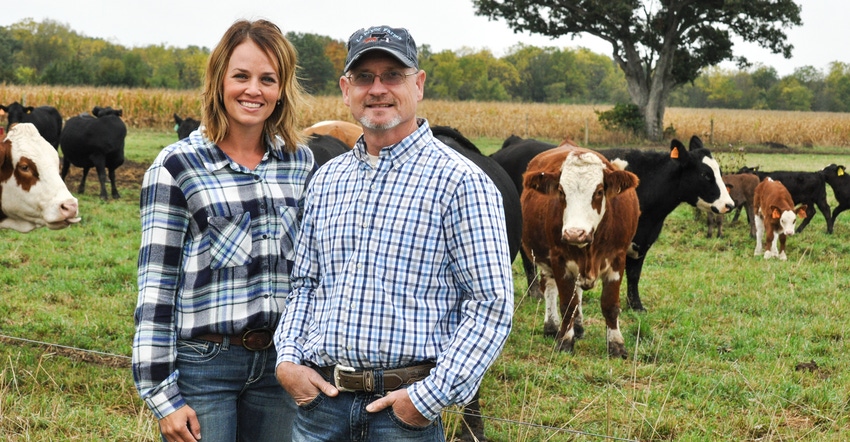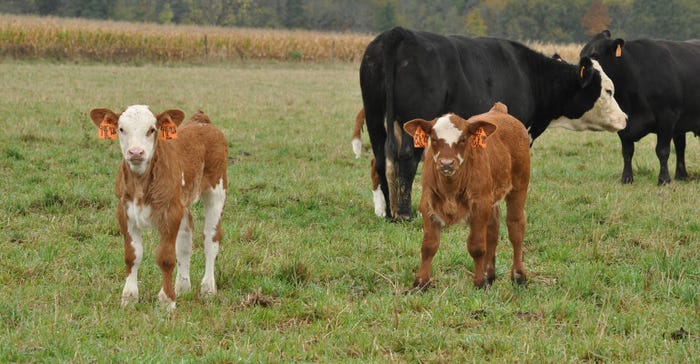
Editor’s note: This is the final in a series of stories about specialty meat businesses. Part 2 looked at resources and marketing opportunities.
Farmers and entrepreneurs breaking into the specialty meat market should place one important factor above all others, says Ottawa, Ill., farmer Mark Boe.
“If you’re going to sell meat for a premium, it has to taste good,” he says. “If it doesn’t taste good, it doesn’t matter what it’s been fed, because people aren’t going to pay a premium for something that doesn’t taste good.”
Mark and his wife, Kristin, began selling La Pryor Farms premium pork products to Logan Square restaurants in Chicago 10 years ago. Prior to that business endeavor, they raised and sold show pigs.
“We were at the point where we needed to get big or get squeezed out,” Mark explains, and adds their neighbors, Beth and Jody Osmond, Cedar Valley Farms, who market their meat through Chicagoland CSAs and farmers markets, helped them make connections to start their business. “This was really before the local food movement, so to speak,” he adds. “But there was a demand for good, locally grown pork.”
Take it or leave it
The Boes raise 300 to 400 Duroc-Hampshire hogs each year. This particular cross delivers a hardy, outdoor pig with a tender finished product, Mark explains. They added a 100-head Angus-Fleckvieh beef herd a few years later that produces a flavorful, tender and lean meat.
The cattle and hogs are outdoor and pasture-raised, and then feed-finished with non-GMO grain raised on the Boes’ farm. The animals are vaccinated, but they are not fed antibiotics or hormones in their feed. Sick animals are treated, but Mark says outstanding breeding and herd health leads to animals that are rarely sick.
Their customers are on board with the Boes’ herd management plan. “We work with our customers and are very open with them,” Mark explains. “They come and take a tour of the farm, and if they like it, they buy it. We’ve never had anyone disagree with it. They understand it and respect it.”
Without sharing exact numbers, Mark says their specialty meats business provides a solid return on investment. “It’s a nice premium to make it worth the extra work you have to go through to do it,” he says.
Getting started
Kristin says marketing their product wasn’t easy in the beginning, which included bringing the livestock to the locker, picking up the processed meat and hauling it to Chicago to sell it. “Trying to be a salesman and a farmer and figuring out how to do that was challenging,” she explains.
“We used to do all the selling and knocking on doors, and then come home and try and do chores,” Mark explains. “Once we got a little bigger, that wasn’t working anymore.”
They sought help from Local Foods, a locally-raised-food wholesaler in Chicagoland, to handle sales and marketing. Now, Kristin and Mark deliver the hogs and cattle to the locker, and Local Foods manages the rest.
 CONVERSATIONS WITH CUSTOMERS: The animals are vaccinated, but they are not fed antibiotics or hormones in their feed, and sick animals are treated. “We work with our customers and are very open with them,” Mark Boe explains. “They come and take a tour of the farm, and if they like it, they buy it. We’ve never had anyone disagree with it. They understand it and respect it.”
CONVERSATIONS WITH CUSTOMERS: The animals are vaccinated, but they are not fed antibiotics or hormones in their feed, and sick animals are treated. “We work with our customers and are very open with them,” Mark Boe explains. “They come and take a tour of the farm, and if they like it, they buy it. We’ve never had anyone disagree with it. They understand it and respect it.”

With production, sales and marketing in check, the Boes have more time to enjoy their business. “It’s fun to watch someone try our product for the first time and watch someone eat the product you’ve put 18 months into. They appreciate all your hard work and effort more,” Mark explains. He values the personal relationships with the chefs and butchers who use their products, which traditional commercial livestock operations often lack.
For Kristin, it’s a dream come true. “Being able to raise a family on the farm, doing what you love and being with your family every day? You just can’t beat it.”
About the Author(s)
You May Also Like




